
ACL reconstruction is a procedure that replaces a torn anterior cruciate ligament (ACL) in your knee. Usually performed using a minimally invasive keyhole technique, the surgeon removes the damaged ligament and replaces it with a graft. Most patients regain full range of motion within three months and fully recover between six and nine months.
If you or a loved one need ACL reconstruction surgery, Ramsay Health Care offers expert care and support throughout your treatment and recovery. Below, you’ll find detailed information on the procedure, who needs it, recovery expectations, and answers to common questions.
Ligaments are strong, flexible tissues that connect bones to other bones. The ACL is a ligament in your knee, connecting your shine bone (tibia) to your thighbone (femur) and providing stability.
When the ACL is partially or completely torn – often due to sports injuries or accidents – ACL reconstruction surgery replaces the damaged ligament with a graft. This graft usually comes from your own body (such as your hamstring or another part of your knee) or from a donor.
The surgery is typically done arthroscopically, meaning small incisions using a camera and specialised tools. This keyhole approach reduces pain and speeds recovery compared to traditional open surgery.
ACL knee injuries most commonly happen during sports through sudden twists, landings, or impacts. They can also occur from falls or slips.
If your ACL is torn, you may experience:
Whether you’ll need ACL reconstruction surgery will depend on how badly your anterior cruciate ligament is damaged.
ACL reconstruction may be recommended if:
ACL reconstruction surgeries are usually carried out under general or spinal anaesthesia.
The surgeon makes small incisions around your knee to insert a thin, flexible tube with a light and camera on the end of it (called an arthroscope), to see inside your knee. Using surgical tools, the damaged ACL is removed, and the ligament graft is positioned through tunnels drilled into your thigh and shin bones. The graft is secured with screws or staples. Incisions are closed, usually with dissolvable stitches.
Because arthroscopic ACL reconstruction surgery is minimally invasive, patients generally experience less pain, lower infection risk, and faster recovery.
ACL surgery typically takes one to three hours.
If you have damaged your anterior cruciate ligament, and surgery is recommended, it’s usually advised to have it within three to six weeks – once swelling has reduced and knee motion improved.
Delaying surgery can increase pain, knee instability, and risk of further injury such as meniscus or cartilage damage.
Your surgeon will recommend the best timing for your ACL reconstruction surgery based on:
Most patients recover well from ACL reconstruction surgery, but as with any operation, complications can occur.
General risks include:
Complications specific to ACL reconstruction surgery include:
It typically takes around six months to fully recover from an ACL reconstruction operation.
ACL reconstruction recovery times will vary by individual, but generally follows these phrases:
Ramsay Health Care offers an all-inclusive Total Care package for self-funded patients, covering all treatment stages with a single, upfront price.
Flexible finance options are also available.
If you have medical insurance, ACL reconstruction may be covered. We recommend confirming your policy details with your provider before treatment.
At Ramsay Health Care, we understand the challenges an ACL knee injury can bring.
With years of expertise in ACL reconstruction and rehabilitation, we offer rapid access to expert orthopaedic knee surgeons and comprehensive onsite support, including physiotherapy and diagnostic imaging.
Our hospitals are equipped with modern technology to ensure the best surgical outcomes and recovery experience.
Contact us today to learn more about ACL reconstruction surgery with Ramsay Health Care.
ACL repair involves reattaching the torn anterior cruciate ligament. This is rarely done because the ligament usually cannot be saved. ACL reconstruction involves replacing the torn ACL with a graft (from your own body or from a donor) and is the most common treatment.
Although ACL reconstructive surgery can be performed in a few hours, and many patients can go home the same day, it’s still considered major orthopaedic surgery. The operation is typically done under general or spinal anaesthesia and requires significant rehabilitation.
Time off work for recovering from ACL reconstruction surgery will vary depending on your job. Desk jobs may require two weeks off, jobs involving standing about 6 weeks, and manual labour several months. Your surgeon will be able to advise how much time you may need off work.
Sleeping after ACL reconstruction surgery may feel difficult at first. You will need to sleep on your back with your leg elevated above heart level using pillows under your calf (not the knee). You may use a brace and pain medication to aid sleep.
ACL surgery recovery times will vary by patient, depending on your individual progress and activity goals. Most people are fully recovered after an ACL reconstruction operation within six to nine months.
Most people return to normal daily activities, and even sports, with proper rehab after ACL reconstruction surgery.
You may experience moderate pain initially after surgery. This can be managed with pain medication and should begin to ease after a couple of weeks.
Walking with crutches usually starts within a day or two of ACL reconstruction surgery. Most people progress to walking unaided by two to six weeks, depending on their recovery.
If your left leg was operated on and you drive an automatic car, you may be able to drive again after two weeks with your doctor’s approval. For manual cars or right knee surgery, you may need to wait longer.
You may be able to take short flights in as little as two weeks after ACL reconstruction surgery. But longer flights are best avoided for at least six weeks as flying increases your risk of blood clots. Check with your surgeon or doctor before flying after an ACL operation.

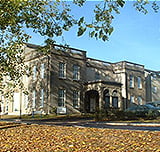
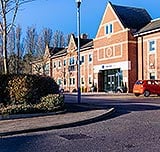


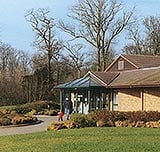
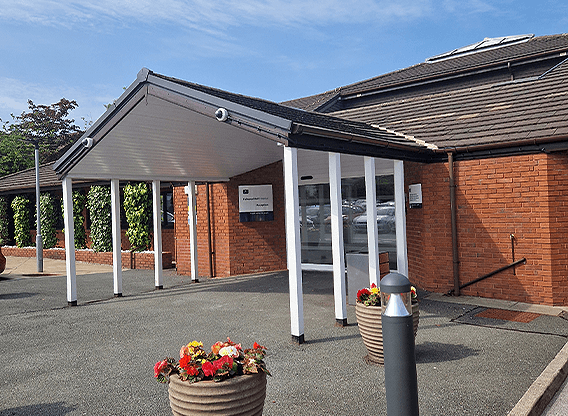
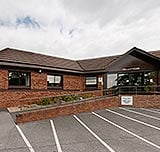

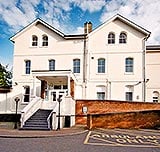
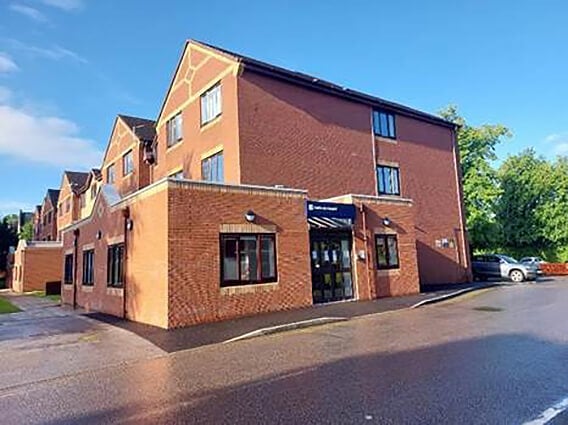

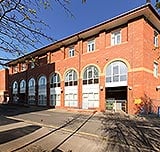
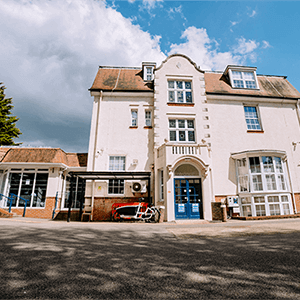
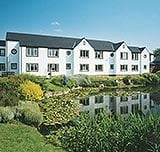



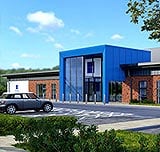
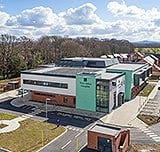
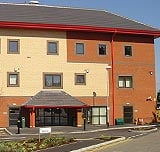

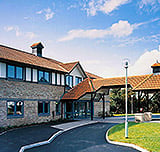

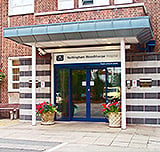
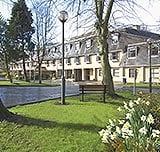
Ramsay Health Care UK is delighted to announce that all 25 hospitals providing endoscopy services have achieved the Joint Advisory Group (JAG) accreditation, and are the only independent provider to attain this.
Mayor of Boston Borough, Barrie Pierpoint, opens new state-of-the-art theatre and unveils refurbishment of reception and additional consulting room and recovery area at Boston West Hospital, Part of Ramsay Health Care UK.
Alistair Strathern, MP for Hitchin visited Pinehill Hospital, part of Ramsay Health Care UK, to meet with staff, patients and doctors, and to learn more about the healthcare services provided to the local community by the hospital.
The information, including but not limited to, text, graphics, images and other material, contained on this website is for educational purposes only and not intended to be a substitute for medical advice, diagnosis or treatment. Always seek the advice of your physician or other qualified health care provider with any questions you may have regarding a medical condition or treatment.
No warranty or guarantee is made that the information contained on this website is complete or accurate in every respect. The testimonials, statements, and opinions presented on our website are applicable to the individuals depicted. Results will vary and may not be representative of the experience of others. Prior patient results are only provided as examples of what may be achievable. Individual results will vary and no guarantee is stated or implied by any photo use or any statement on this website.
Ramsay is a trusted provider of plastic or reconstructive surgery treatments as a part of our wrap-around holistic patient care. Our personal, friendly and professional team are here to support you throughout to ensure the best possible care. All procedures we perform are clinically justified.
*Acceptance is subject to status. Terms and conditions apply. Ramsay Health Care UK Operations Limited is authorised and regulated by the Financial Conduct authority under FRN 702886. Ramsay Healthcare UK Operations is acting as a credit broker to Chrysalis Finance Limited.
Ramsay Health Care UK is not currently recruiting for any roles based outside of England. If you are interested in applying for a role with Ramsay Health Care UK, please note that all available positions are advertised exclusively on our official website: https://www.ramsayhealth.co.uk/careers. Be cautious of individuals or organisations that approach you directly for remotely-based roles. Always verify the authenticity of the job offer and be careful with whom you share your personal information. For more information and advice on employment fraud, please visit: https://www.ramsayhealth.co.uk/careers/recruitment-fraud